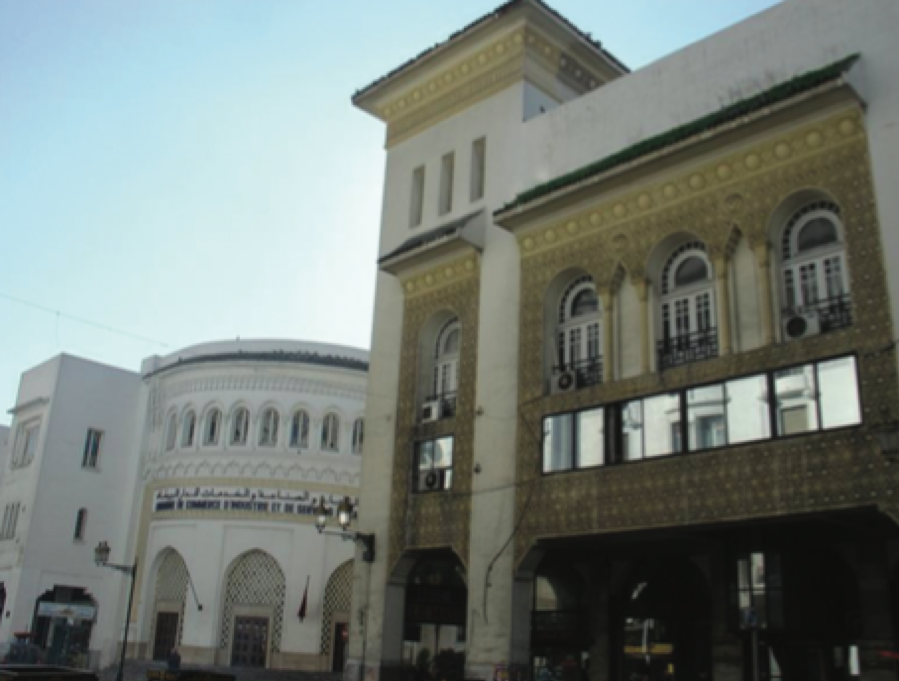The inclusion of a capital gains tax hike in Morocco’s 2008 budget is designed to increase government revenues in order to subsidize the rising cost of commodities on global markets. The tax rise, from the 10% rate introduced last year, to 15%, has caused some disquiet. Leading many in the capital markets sector to claim it will stifle small investors, who have recently shown increased interest in the stock market. The sell-off in the immediate aftermath of the announcement suggests that these fears may have some foundation. However, in the medium term, the Casablanca Stock Exchange (CSE) looks set to remain dynamic. Many initial public offerings (IPOs) of recent years have been hugely oversubscribed, and 2007 was no exception.
There was not a great deal of parliamentary enthusiasm for the tax rise, with fewer than half of lawmakers turning out for the vote, and 96 voting in favor and 67 against. The idea of an increase was first floated in early November, when economy and finance minister Salaheddine Mezouar published the draft budget. Between the announcement and the beginning of December, the benchmark MADEX index, a star performer this year, dropped 9.6%. This drop is likely to have been led by institutional investors, who may well be followed by individuals.
While there has been a global retreat from capital markets due to developed economies slowing and the 2007 credit crunch, the tax increase and subsequent drop in MADEX should be seen in the context of past shocks. In 1998, the CSE underwent a severe correction after initial listings were discounted, leading to unrealistic gains. In spring this year, there was another sharp drop, with the MADEX losing 6.35% between May 8 and May 10.
Consequently, capital markets insiders are wary of any government move that reduces the confidence and enthusiasm of investors, many of whom have already been burned once, and are just returning to the CSE, which currently has capitalization of $77 million.
There have also been questions about whether the tax will have the desired effect of covering the commodity subsidies and plugging the hole in the budget left by a recent cut in corporate tax form 35% to 30%. The government has pledged $2.6 billion to subsidize cereals and oil products to counteract inflation, an increase of almost 50% on last year. Additionally, $1 billion has been allocated to subsidize wheat, sugar and cooking oil. These commitments take the proportion of government revenue allocated to subsidies to 8.4%.
The tax seems to be a populist move, taxing gains on assets that the majority of Moroccans do not own in order to subsidize the products that make up a large proportion of the purchases of the less affluent, and which have been particularly subject to inflation of late.
However, whatever the wisdom of and political motives behind the tax increase, current activity on the CSE has been so intense as to suggest another wave of over-enthusiasm, as occurred before 1998 and May this year. Arguably, the tax could play a part in reducing the number of fair-weather investors, benefiting the exchange in the long run.
The exchange’s growth since 1998 has been driven by IPOs, the majority of which have been very successful. This year alone, seven firms have launched offerings, after a record 10 in 2006, and two more are expected to make IPOs before the end of the year. Consumer credit agency Salafin and Stokvis, a construction equipment distributor, will take the total number of firms traded on the CSE to 72.
Such has been the popularity of IPOs huge oversubscriptions have occurred, with more than 100 times as many applications for October’s listing of Atlanta, an insurance company, as there were shares available. Consequently, the share sale was curtailed by a day. The stock has surged since, gaining almost 60% in two months.
Similarly, the 20% IPO of property developer Compagnie Générale Immobilière (CGI), in which government investment body Caisse de Dépôt et de Gestion has an 80% share, was 141 times oversubscribed. The rate of allocation was therefore reduced to 0.8% for the 55,000 new shareholders. Since the listing, the stock’s popularity has not waned and the price has doubled.
Trading volumes have also been boosted by the introduction of online brokerage services by a handful of Moroccan banks.
While the tax increase has caused a stir within capital markets, and will be used to prop up expensive subsidies, it may in fact have a stabilizing effect on the market. History shows that, when the CSE grows at breakneck pace, it tends to be followed by a painful correction. The capital gains tax hike may help ease the breaks and prevent this happening again.























